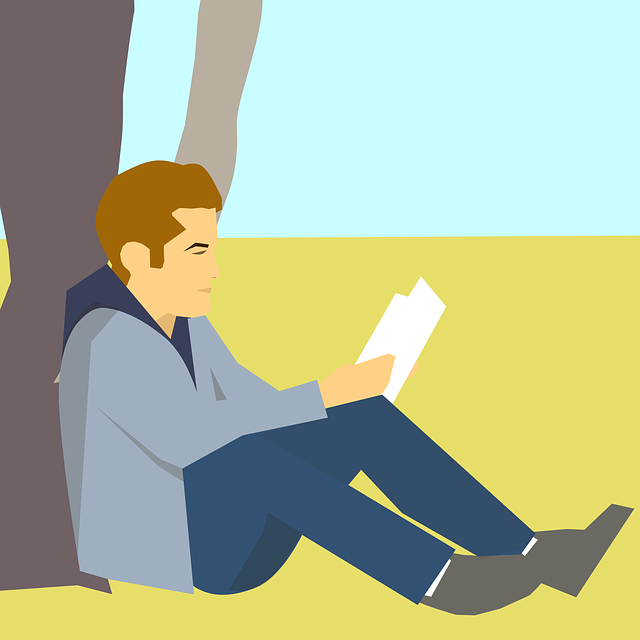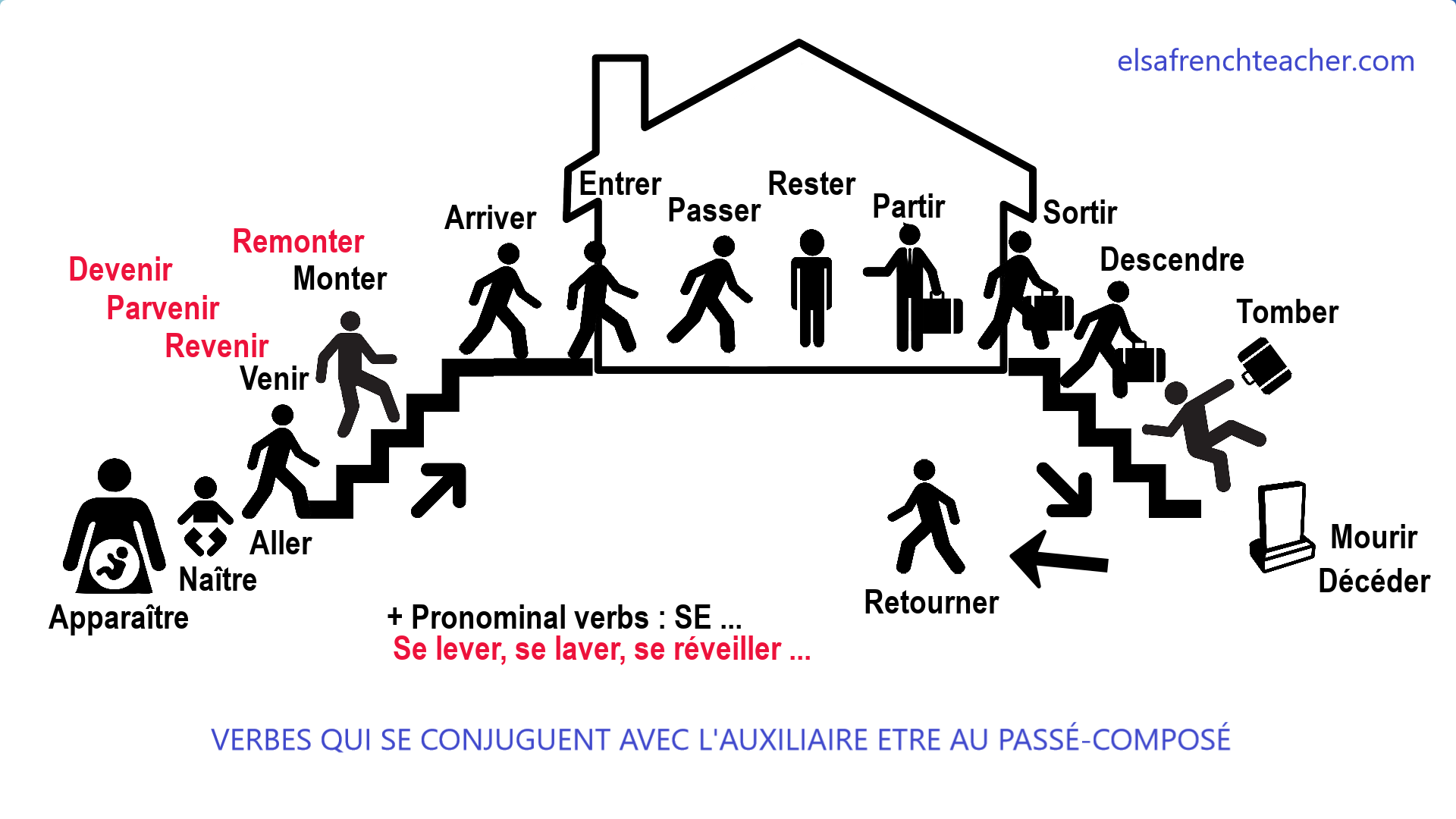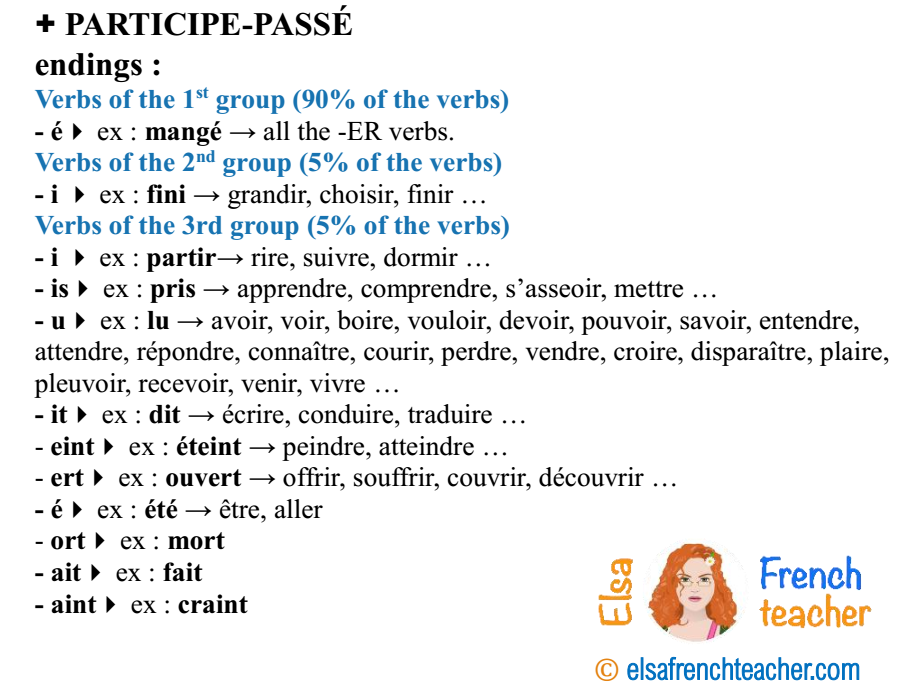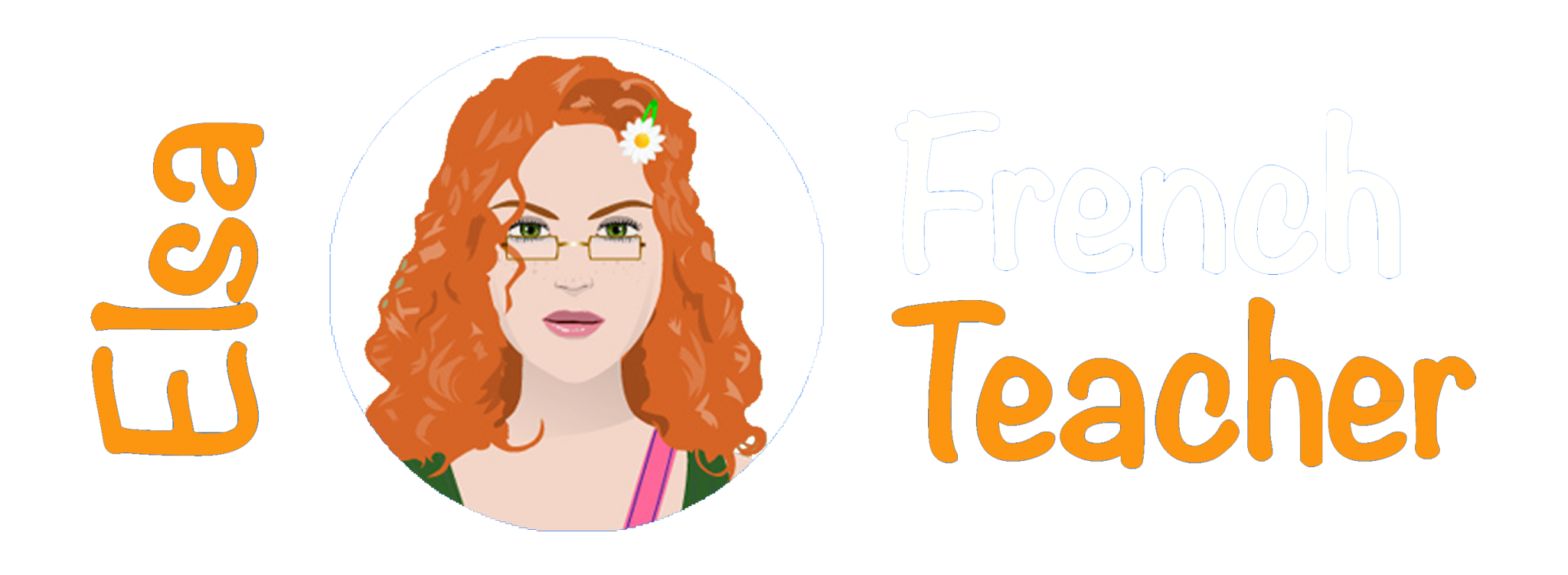The French passé-composé
EXERCICE :
Can you translate this text in French?
Yesterday, I got up at eight, dressed, ate my breakfast, and went out.
I went to the park and ran for 20 minutes. Then I walked around and walked to the kiosque.
There, I bought a magazine, I read a little I drunk a bottle of water and I went home by bus.

If it's too hard you can complete the sentences
Hier, je ………………… (se lever) à huit heures, je ………………… (s’habiller), j’ ………………… (manger) mon petit-déjeuner et je ………………… (sortir). Je ………………… (aller) au parc et j’ ………………… (courir) 20 minutes. Ensuite, je ………………… (se promener) et j’ ………………… (marcher) jusqu’au kiosque. Là, j’ ………………… (acheter) un magazine, j’ ………………… (lire) un peu, j’ ………………… (boire) une bouteille d’eau et je ………………… (rentrer) chez moi en bus.
Here are the answers 🙂
Hier, je me suis levé à huit heures, je me suis habillé, j’ai mangé mon petit-déjeuner et je suis sorti.
Je suis allé au parc et j’ai couru 20 minutes. Ensuite, je me suis promené et j’ai marché jusqu’au kiosque.
Là, j’ai acheté un magazine, j’ai lu un peu, j’ai bu une bouteille d’eau et je suis rentré chez moi en bus.
THE PASSÉ-COMPOSÉ
The passé-composé is a compound tense as the name suggests. It means that it has two parts.
This is very important because if you do not have two parts you are sure that it is not the passé-composé.
What are these two parts?
THE AUXILIARY + PARTICIPE-PASSE
When you start learning this tense and you make sentences with it, you often forget the auxiliary. So be careful!
1. The auxiliary
There are 2 possible choices for the auxiliary: the auxiliary ETRE and the auxiliary AVOIR.
How to choose?
Well, you have to know that some verbs use AVOIR and other ETRE.
1.1. The auxiliary avoir
In fact, the majority of verbs use the auxiliary AVOIR. This means that you have the verb conjugate to the present before the past-participle.
(Normally you already know the verb to have in the present. If not, you must review the present before learning this lesson because it is very important to know your basics before moving forward in learning. lesson about the present)
We get this :
J’AI
TU AS
IL A
NOUS AVONS + PARTICIPE-PASSE
VOUS AVEZ
ILS ONT
Here are some examples of verbs conjugated in the passé-composé:
J’ai visité la ville, tu as pris le bus, tu m’as retrouvé, nous avons mangé au restaurant.
1.2. The auxiliary être
So you understand that it’s easy: most verbs use the verb AVOIR in the present as an auxiliary.
But, some verbs are different and use the verb ETRE in the present as an auxiliary.
We get :
JE SUIS
TU ES
IL EST
NOUS SOMMES + PARTICIPE-PASSE
VOUS ETES
ILS SONT
What are the verbs that use the auxiliary ETRE?
This list has changed a lot in the history of the French language and stabilized in the 17th century.
– Today we have a list of 16 verbs that you must memorize:
They are often called « movement verbs » but not all movement verbs are in this list. For example, “marcher” is used with AVOIR. So I advise you to just memorize this list.
– In this list we also have verbs built from these 16 verbs, for example: revenir, parvenir, devenir, repasser, remonter etc.
– And finally all the pronominal verbs (reflexive) : all the verbs whose INFINITIVE form starts with SE.
For example: se lever, se laver, se promener, se réveiller etc. (To learn more about the reflexive verbs, read my article).
We get :
Je me suis levée, tu t’es promené, on s’est perdus.
2. The participe-passé
To conjugate in the passé-composé, we also need to choose the form of the past-participle.
In the previous examples you have seen that the participe-passé are different according to the verbs.
Here is a table summarizing the past-participle endings:

So when you learn a new verb, be curious to look at its past-participle form.
Do not worry, you will memorize very quickly the most common verbs.
3. Conclusion
There is still a lot to say about the passé-composé and I keep it for future videos. But today you have learned the basics.
You have learned that:
• there is an auxiliary and a past participle,
• we must memorize the list of verbs that conjugate with ETRE
• and that we must also memorize some past-participles of common verbs of the 3rd group, because they are irregular. All the others are regular.
[activecampaign form=11]

You are a great teacher! We like you a lot and may God bless you!
Merci Clarence !